Seven protesters shot dead during Sudan military coup as world leaders urge army to pull back
Among those detained by the army include the PM and members of his cabinet
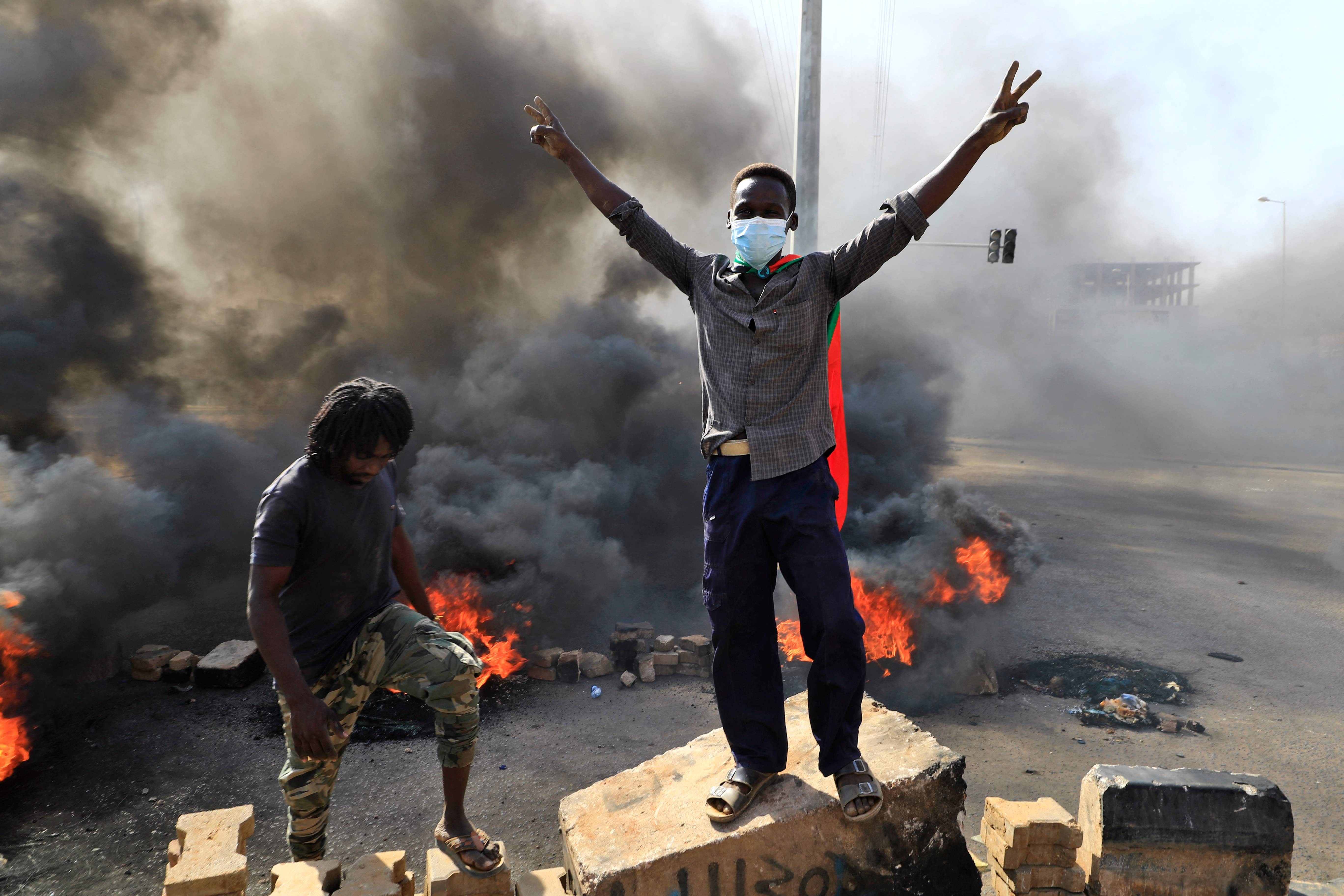
Sudan’s military staged an attempted coup on Monday, with soldiers arresting the prime minister and cabinet members and taking them to undisclosed locations, while declaring a state of emergency.
Seven people were shot dead and 140 injured during the ensuing protests, according to a health ministry official quoted by Reuters.
Thousands took to the streets of the capital Khartoum and its twin city of Omdurman to protest. Footage shared online showed heavily armed Sudanese army and paramilitary forces fanning out across the city, restricting civilian movements and firing teargas at protesters carrying national flags and burning tyres.
Gen Abdel Fattah al-Burhan, who headed the sovereign council that had shared power between the military and civilians formed after the overthrow of long-ruling autocrat Omar al-Bashir in a popular uprising two years ago, said the council had been dissolved.
Gen Al-Burhan said the military takeover had been done to “complete the democratic transition”.
“What the country is going through now is a real threat and danger to the dreams of the youth and the hopes of the nation,” he said, setting elections for July 2023. The military said it intended to appoint a government of technocrats to run the country until the election.
Adding to the sense of disorder, the internet and phone lines across the country were disrupted.
A former senior Sudanese diplomat in the US and civil society figures inside the country told The Independent that hundreds of people had been detained.
“We heard 300 have been arrested but we do not have a complete list of names. And so hundreds of people are protesting against the decision. We are worried that another massacre will happen,” said Dr Samia al-Nagar, a prominent civil society activist in Khartoum describing the situation on the streets.
“It is clear this is happening because the military, which runs a lot of the economy, does not want to hand over the control of the country to civilians.”
The coup was condemned internationally, with countries across the world, including the US, calling on the military to release captured political leaders.
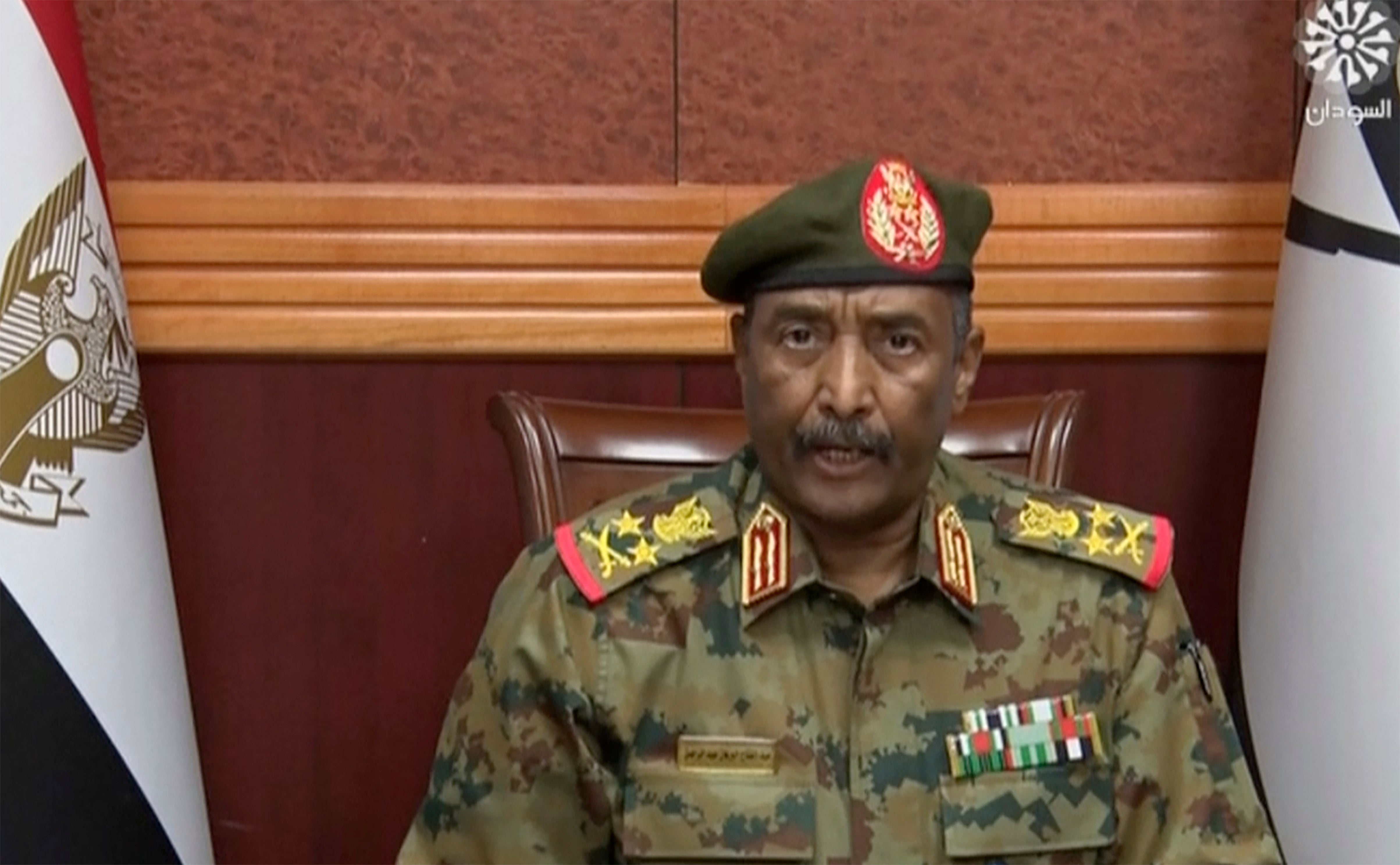
Prime Minister Abdalla Hamdok was among those being held and taken to an undisclosed location after refusing to issue a statement in support of the takeover. His office said that he and his wife were detained as part of what the office described as a “complete coup”.
Faisal Mohamed Salih, a former minister and an adviser to the prime minister, was also arrested along with the ruling sovereign council member Mohamed al-Faki Soleiman.
In Omdurman, protesters barricaded streets and chanted in support of civilian rule.
“We will defend democracy until the end,” said one protester, 21-year-old Iman Ahmed. “Burhan cannot deceive us. This is a military coup,” said another young man who gave his name as Saleh.
However, a former senior Sudanese diplomat defended the military actions, saying that the decision was made because the civilian wing of government had “dragged their feet” on new elections and had instead repeatedly blamed the army.
“Sudan is not the US or Britain: you cannot insult the army. The country is a big mess and the situation is threatening national security. The army has stepped in to stop the feud between different small political parties, to stop the chaos,” the former diplomat said.
“The government kept dragging its feet about elections and extending the transitional period. I expect elections to be announced,” the diplomat added.
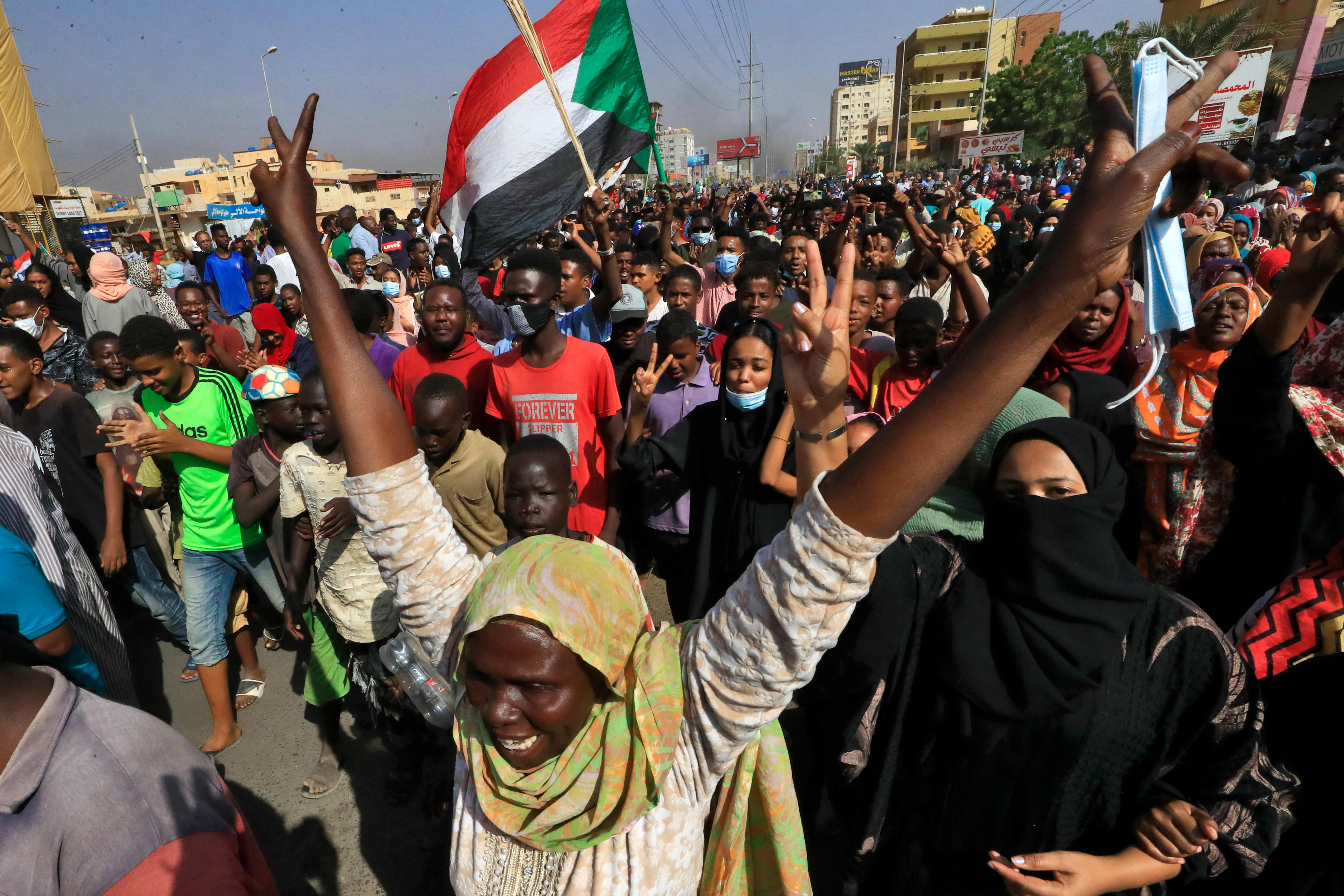
Sudan has been grappling with a transition to democracy since long-time autocrat al-Bashir was overthrown following mass protests in 2019.
Mr Hamdok, an economist and former senior UN official, was appointed as a technocratic prime minister in 2019, but struggled to sustain the transition in the wake of splits between the military and civilians and the pressures of the economic crisis.
A coup was also attempted in September as tensions rose between Sudan’s civilian and military leaders. Earlier this month protests were staged by opponents of Sudan’s transition to democracy, demanding the army take over the country.
The development also came after a meeting between the US’s special envoy for the Horn of Africa Jeffrey Feltman and Sudanese military and civilian leaders on Saturday and Sunday in efforts to resolve the dispute.
Issuing a statement, Mr Feltman said that “the US is deeply alarmed at reports of a military take-over of the transitional government”.
“This would contravene the constitutional declaration and the democratic aspirations of the Sudanese people and is utterly unacceptable,” he added.
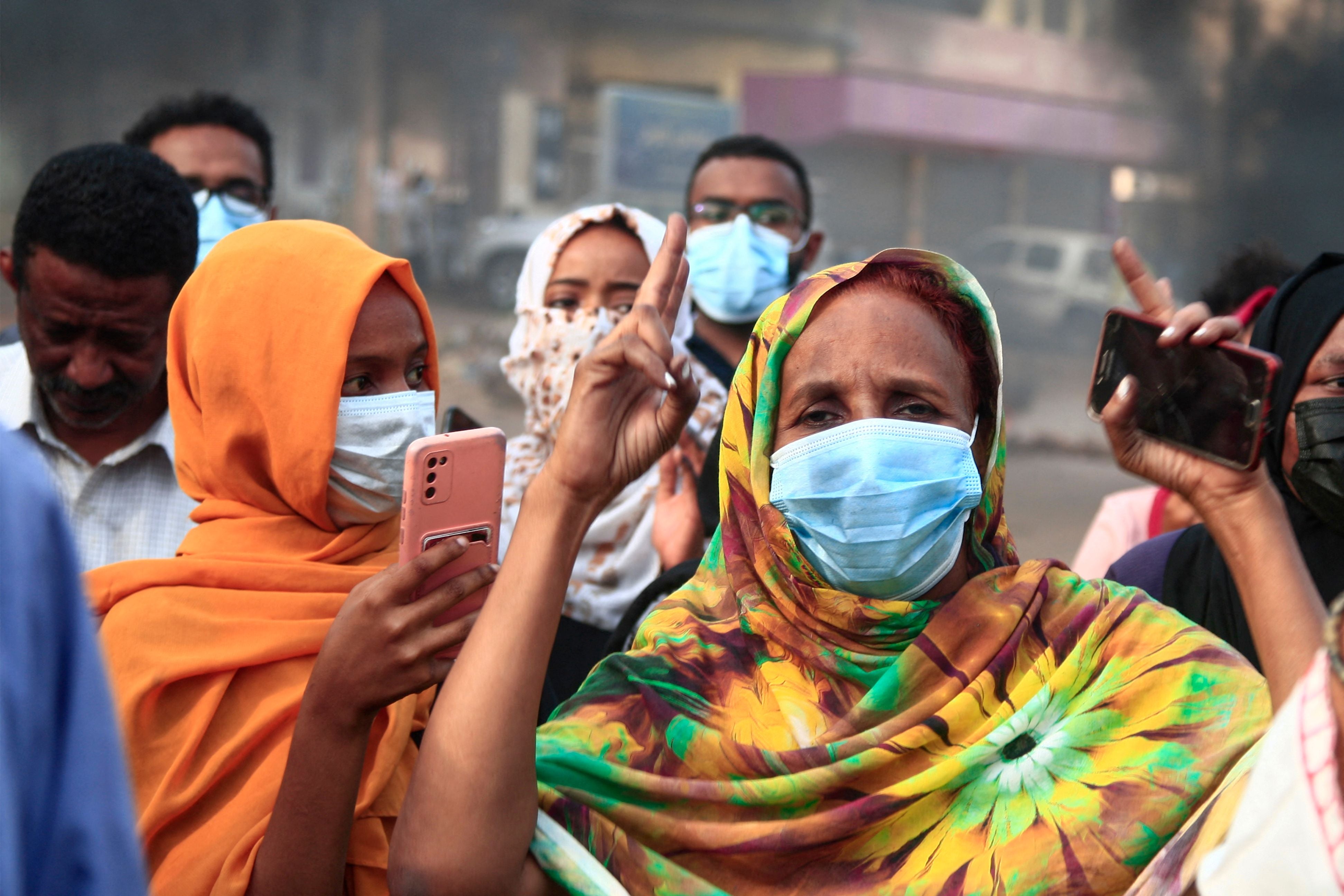
This echoed a statement by the European Union which joined the US in expressing “utmost concern” and called on the “stakeholders and regional partners to put back on track the transition process”.
French president Emmanuel Macron called for the immediate release of Mr Hamdok, while the Arab League urged for “immediate “dialogue”. Britain called the coup an unacceptable betrayal of the Sudanese people.
The United Nations Mission to Sudan also issued an emphatic rebuke of what it called an ongoing coup and attempts to undermine the northeast African nation’s fragile democratic transition.
The mission called on Sudan’s security forces “to immediately release those who have been unlawfully detained or placed under house arrest”, and urged all parties to “exercise utmost restraint”. The Sudanese Professionals Association, a pro-democracy group, has meanwhile called for a general strike in response to what it described as an unfolding “military coup”.
“We urge the masses to go out on the streets and occupy them, close all roads with barricades, stage a general labour strike, and not to cooperate with putschists and use civil disobedience to confront them,” the group said in a statement.
Khartoum’s main airport has also been shut and international flights suspended, reported the Dubai-based al-Arabiya TV channel.
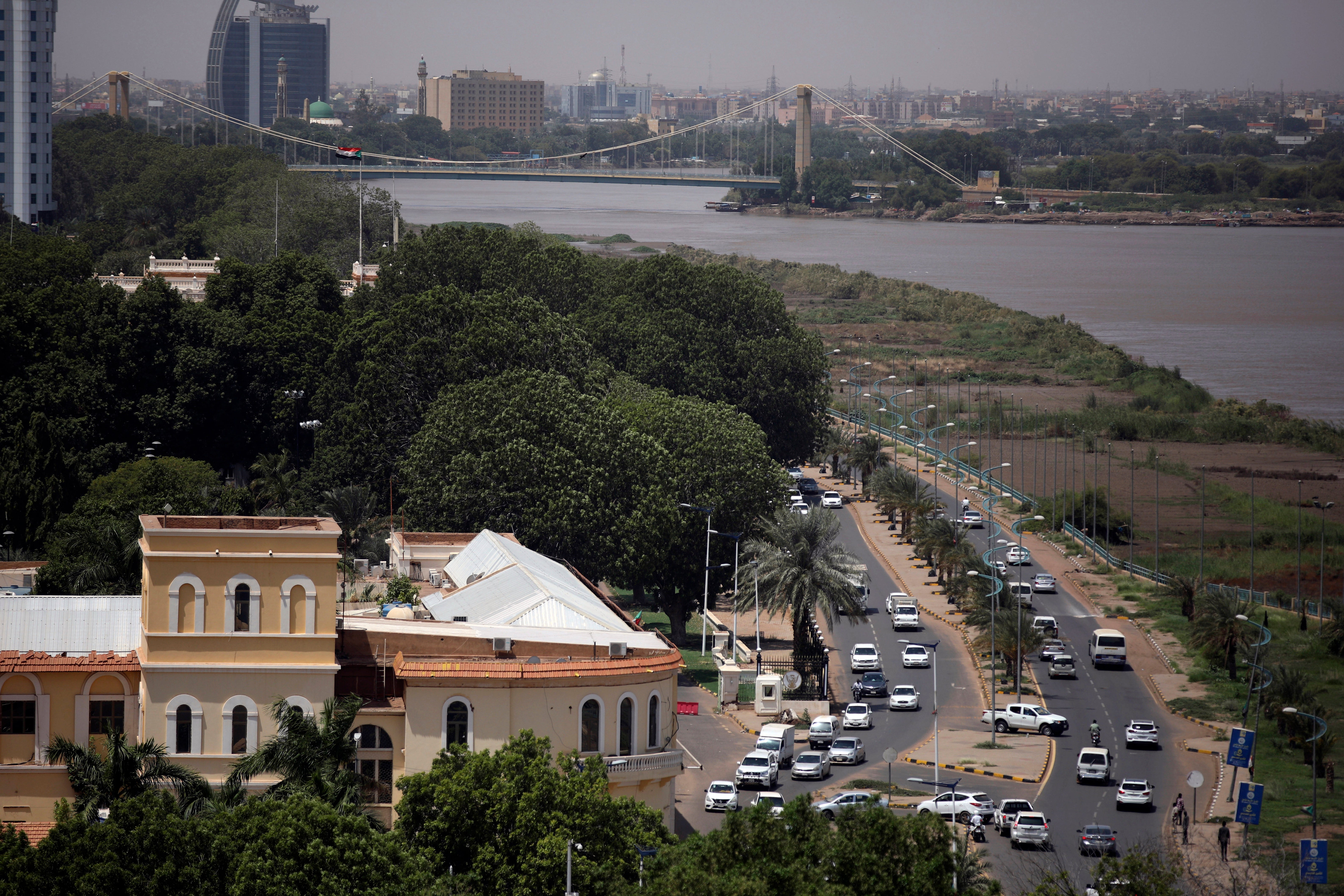
Apart from Mr Salih and Mr Soleiman, industry minister Ibrahim al-Sheikh and information minister Hamza Baloul have also been detained. Ayman Khalid, governor of the state containing the capital, was also arrested.
Meanwhile, NetBlocks, an internet monitoring organisation, said in a statement that there has been “significant disruption to internet services” in the country, “affecting cellular and some fixed-line connectivity on multiple providers”.
“The disruption is likely to limit the free flow of information online and news coverage of incidents on the ground,” it added.
Sudan has also been suffering a grave economic crisis in recent weeks. Civilian officials have claimed credit for some tentative signs of stabilisation after a sharp devaluation of the currency and the lifting of fuel subsidies.
Sudan has been ruled for most of its post-colonial history by military leaders who seized power in coups. It had become a pariah to the west on the US terrorism blacklist under Bashir, who hosted Osama bin Laden in the 1990s and is wanted by the International Criminal Court in The Hague for war crimes.



Join our commenting forum
Join thought-provoking conversations, follow other Independent readers and see their replies
Comments